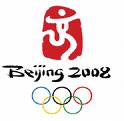China strives to be world leader in science, expert says
July - August, 2008 | Volume 7, Issue 4
China is striving to become a leading global scientific power, but it may not happen immediately, says Dr. Lincoln Chen, president of the China Medical Board, a nonprofit organization that promotes health education and research in the medical universities of the world's most populous country.
Chen reminded a group of scientists and policy experts from various institutes and centers at a Fogarty forum that China is rapidly producing and advancing its export of knowledge. Although the country has one-quarter of the world's doctors, they are not all well trained, and the faculty and universities are still handicapped by the stifling of thought during the Cultural Revolution of the 1960s and 1970s, he said.
However, the country is increasingly active in global health, including providing assistance in Southeast Asia and Africa and has an advanced computer-based online modern infectious disease surveillance system, he said, noting that China "will follow the rules of the game on the international circuit."
When John D. Rockefeller created the China Medical Board in 1914, Chen said, "China was the Africa of today," considered "backward, miserable and ignorant." However, "This is a great scientific civilization," Chen said, pointing to China's many scientific achievements, including development of artemisinin as an anti-malarial.
Despite setbacks to science during the Cultural Revolution, China is "an important global player," and as a major global exporter of all sorts of manufactured products, the country also exports health risks, Chen said. He cited the sheer size of its population living in proximity to vastly increased numbers of domesticated animals, which has potential for infectious disease emergence.
 He predicted that the Olympics will have transformed America's thinking and understanding of China. "It will generate both enormous admiration but also concerns. China is not what it was 25 years ago in our mental imagery, but in terms of global health, China is very important."
He predicted that the Olympics will have transformed America's thinking and understanding of China. "It will generate both enormous admiration but also concerns. China is not what it was 25 years ago in our mental imagery, but in terms of global health, China is very important."
Chen noted three significant issues raised by China's emergence in global health.
- Because of scientific talent, the availability of subjects and low cost of operations, China is hosting increasing numbers of clinical trials, which Chen said will raise inevitable questions about ethics and validity.
- While science itself is rapidly expanding, the culture of science is still evolving. China has established independent peer and ethical review systems, and Chinese journals are numerous.
- Chinese scientists are attractive recruits for drug companies because of the dearth of science Ph.Ds in the West, the availability of Chinese scientists and lower cost of training and research operations in China.
"China is now striving to be a top scientific power in the world," Chen said, adding, "It's not going to be that, very shortly. I think the culture of science in China needs to be rebuilt from past turmoil."
Nevertheless, he said, "The universities are producing and the government is investing large amounts to be at the frontier of cutting edge science."
To view Adobe PDF files,
download current, free accessible plug-ins from Adobe's website.
Related World Regions / Countries